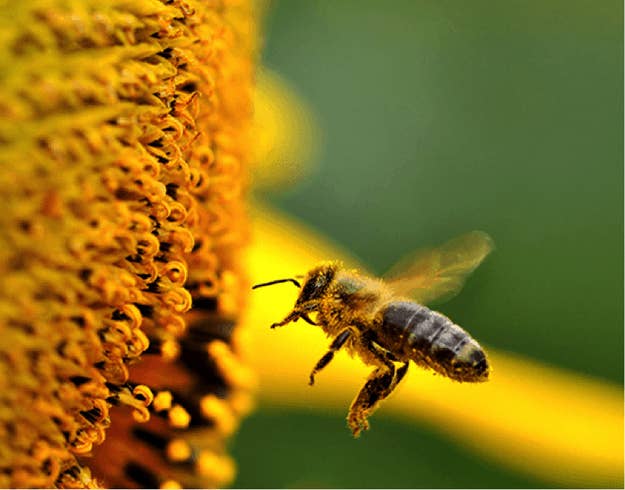
Source: CTV News
Ontario, Canada – July 5, 2013
Ontario farmer, Dave Schuit, lost 37 million of his bees in approximately 600 hives due to harmful pesticides in the past year. Schuit and a growing number of beekeepers have joined the protest against a group of pesticides they argue needs banning. What is even more alarming is that Schuit's queens are struggling to survive.
Over the past years, scientists have been in disagreement on what is killing off the bees. They state that global warming has brought on changes to the ecosystem and could be the cause of deaths to bees. However, farmers aren't swayed towards the belief of Global Warming. They are beginning to point the finger at a new pesticide called Neonicotinoids, which is derived from nicotine. These nicotine-derived pesticides could be guilty of giving these bees a buzz.
Clement Kent, from York University explains that these neonicotinoids aren't sprayed onto plants directly, but rather applied to the seed before it is sown. The chemical makes its way to the leaves and to its pollen.
"Nicotine protects plants from bugs because it's actually a nerve poison that acts more strongly on bugs than on people, which is why we can smoke a cigarette and not drop dead," Kent said.
Wilsonville OR. – June 21, 2013
Source: Xerces Society for Invertebrate Conservation
Over an estimated 50,000 bumblebees have died resulting from pesticides as the most likely cause. Dinotefuran had been reported being applied to ornamental trees around a Target parking lot by the Oregon Department of Agriculture (ODA). Dinotefuran is sold under the trade name 'Safari,' belongingto the family of neonicotinoids that have been associated with bee deaths in recent years.
Further investigation by the ODA points to the use of this pesticide while the tree was flowering; this is in violation of the product's instructions. Scott Black, the executive director of the Xerces Society that reported this released information goes on to say, "Beyond the fact that a pesticide was applied to plants while they were attracting large numbers of bees, in this case the pesticide was applied for purely cosmetic reasons. There was no threat to human health or the protection of farm crops that even factored into this decision."
bee pollenating flower
Why are bees so important?
Bees may strike fear in people, but they are actually one of the most beneficial insects in the United States. Bees are responsible for approximately 80% of the pollination of fruits, nut, grains and vegetables. Bee pollination is vital to human survival, for if plants were not pollenated, seeds and fruit could not develop. Without seeds and fruit, plant life would be in jeopardy as well as the animals that eat those plants. Without pollination, human existence is not likely.
How Green Pesticides and Pest Control Can Save You and The Bees
Green pest control companies like Alpha Ecological take a responsible approach to pest management. In the case of bee removal, pesticides should never be sprayed on trees or any plant that is part of the bee's pollination process. Experienced pest control technicians tailor pest control plans that that fit your needs, along with the needs of the enviornment. Pesticides are beneficial when used correctly as they help control fungi and pests from foods that we eat. Pesticides also help protect from the diseases that are carried by insects, like mosquitos.

